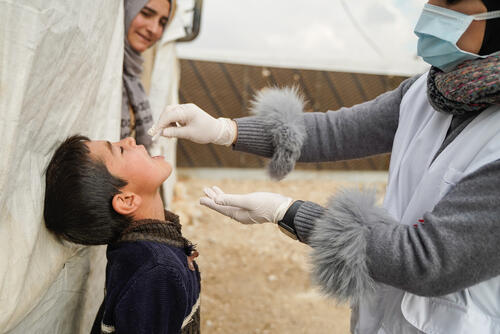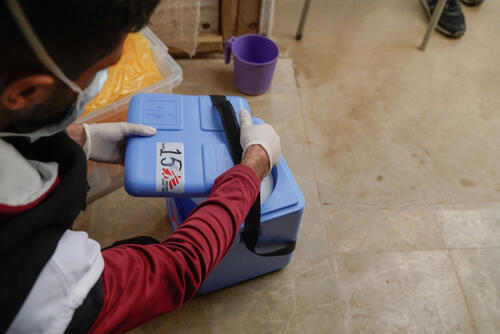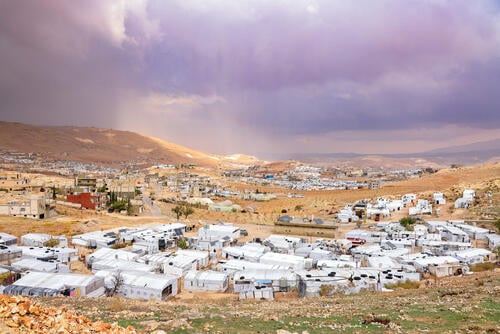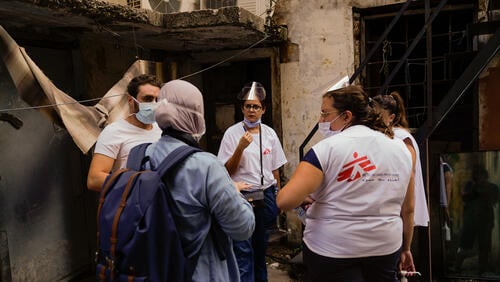- Essential measures including access to vaccination and safe drinking water needed to curb the spread of cholera in Lebanon.
- Amid the rapid increase of cases in Lebanon, MSF and the Ministry of Public Health have begun vaccinations against the disease.
Nineteen people have died from cholera in Lebanon since 6 October, when the country recorded its first cholera case in almost three decades. The number of confirmed and suspected cases has risen to 3,671 in the country as of 16 November, 2022.
Médecins Sans Frontières (MSF) is contributing to the national vaccination campaign against cholera launched by the Lebanese Ministry of Public Health, by vaccinating people in Arsal, Akkar, Tripoli and Baalbak-Hermel, in the north and northeast of Lebanon, where most cholera cases are registered in the country.
“To be able to effectively curb the outbreak, it is crucial to enhance cholera prevention measures, of which vaccination is one of the critical elements,” says Marcelo Fernandez, MSF head of mission in Lebanon.

“However, if no meaningful actions are taken to ensure people have proper access to safe drinking water and sanitation services in the country, we can expect cholera and other waterborne infectious diseases to resurface regularly in Lebanon,” says Fernandez.
600,000 cholera vaccine doses received by Lebanon, as first phase procurement, are to be administered in coordination with various international and local actors. MSF’s vaccination efforts are targeting Lebanese and refugees living in poor and overcrowded areas in the country; conditions that put people at heightened risk of contracting infectious diseases.
“It’s been five days since we started vaccinating and, so far, we have vaccinated 14,224 people,” says Caline Rehayem, MSF deputy medical coordinator in Lebanon.
“Our teams are going from door to door in neighbourhoods, visiting homes, shops, and camps seeking out people to get vaccinated and to raise awareness on the importance of vaccination against the highly contagious disease,” says Rehayem.
In addition to administering cholera vaccines, our teams are also providing patient care. In the Bekaa valley (Bar Elias and Arsal), we are running two cholera treatment centres with a total capacity of 70 beds. In Tripoli, north of Lebanon, and Arsal, oral rehydration points are being set up for people who do not require hospitalisation.
We are also providing technical training to Lebanese health workers on the treatment of cholera patients, mobilising teams to raise awareness about the disease and distributing hygiene kits to help people maintain essential household and personal hygiene in the Bekaa Valley, north, and northeast of Lebanon.
MSF is currently providing free medical care for vulnerable communities throughout Lebanon, including Lebanese citizens, refugees and migrant workers. Our teams are present in different locations across the country including Bekaa Valley, Akkar, and South Beirut. Our services include mental health, sexual and reproductive health, paediatric care, vaccinations and treatment for non-communicable diseases, such as diabetes and hypertension. With over 600 staff, we conduct about 150,000 consultations every year in Lebanon.






